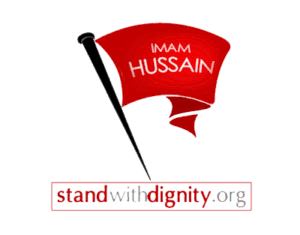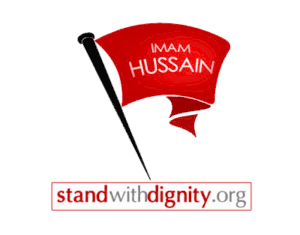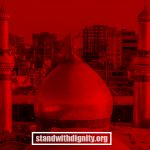Fatima Kermalli
Perfection. An esteemed trait. Many strive toward perfection; yet, no one is perfect. However, human beings who are fallible have the potential to have one or more qualities and/or abilities that are extremely developed. These are the redeeming qualities of a person. However, there is nothing more reputable than possessing an impeccable character. Case in point, are the saints and the righteous.
For an instance, Ali ibn Abu Talib, the first Imam or immediate successor to Prophet Muhammad (p) was sitting with his companions. Someone came and insulted Ali with very unbecoming and harsh words. Ali turned to his servant Qambar and said “O’ Qambar take this man and fulfill his needs. Give him whatever he wants.” The companions witnessing this said, “O Ali this man insulted you. You should teach him a lesson”. Imam Ali said, “I did teach him a lesson.” They persisted, “You should offend or punish this person. So what lesson did you give him Ali?” Imam Ali explained, “I did not want his ignorance to beat my knowledge and I did not want his sin to overcome my forgiveness and I did not want his need to surpass my generosity.”
Such are the teachings of Islam on upholding character. The lesson is not only in being the better person, but it is also in assisting the other person be it with wealth, energy, time, or any other means available. In this present world where modern technology and conveniences which were meant to make our lives easier and more manageable have risen to overload and multiplicity of tasks affecting from what is put in front of us to how we function. Silence and serenity have given way to constant verbiage and action through social media, the internet, and streaming. Reflection is practically non-existent as time evades us. In the process, we not only lose ourselves but each other. Islam has always been about community and giving back. The Prophets and Imams or the twelve Immaculate leaders have always demonstrated this.
Today is Arbaeen, the fortieth day after the anniversary of the martyrdom of Hussein son of Ali (as), the grandson of Prophet Muhammad (p). Imam Hussain refused to pay allegiance to an oppressive tyrant who forsaken human values of freedom, justice, and faith. For this Imam Hussain (as) was killed. His name and mission live on because truth never dies.
Moreover, Imam Husain like his father and grandfather had an aim which was to serve God through servicing humanity and reforming society.
Therefore, 1400 years later people gather year after year of various beliefs to pay their respects at his shrine in Kerbala, Iraq on the day of Arbaeen. It is projected that there will from the very least 25 million people present. It is the world’s largest annual peaceful human gathering that takes place every year.
What is more, in his name people strive to contribute to society in whatever capacity they can. This year a global initiative was made by Who is Hussain (Whoishussain.org), a social justice charity, to rally blood donors across 250 locations and six continents to give blood on August 27, 2022. The GlobalBloodHeroes Day campaign aimed to break a world record in an attempt to save 150,000 lives through 50,000 donations around the world for the most blood donations in one calendar day. Remarkably, One blood donation can help save three lives.
Thus, empowerment is what Imam Hussain teaches us. We can make a difference if we only try. Imam Hussain assured in his own words and actions, “God will help the person who cares about other people’s needs, both in this world and the hereafter.”











